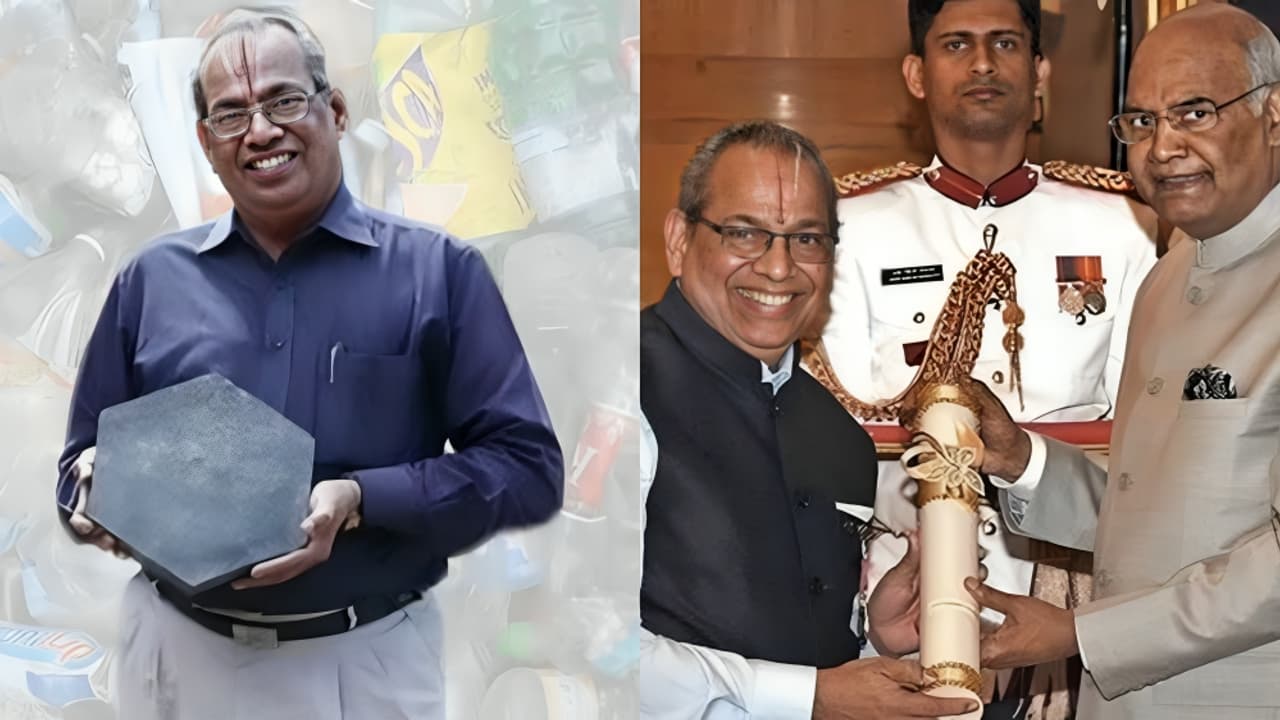Dr. Rajagopalan Vasudevan, a retired chemistry professor, pioneered the idea of using plastic waste in road construction. His innovative method has helped India build over 100,000 km of stronger, eco-friendly, and low-cost roads across 11 states.
India’s plastic waste problem has long been a challenge. But in 2002, Dr. Rajagopalan Vasudevan, a chemistry professor from Thiagarajar College of Engineering in Madurai, Tamil Nadu, came up with a groundbreaking solution. He discovered a way to shred waste plastic, mix it with bitumen, and use it to build roads that are stronger, cheaper and far more sustainable. This simple but game-changing method addressed two major issues at once, reducing plastic pollution and improving the quality of India’s road network.
Plastic roads across India
Thanks to Dr. Vasudevan’s innovation, India now has over 100,000 kilometers of plastic roads spread across at least 11 states. These roads have been proven to be more resistant to damage from heavy rains and need much less maintenance compared to conventional ones.
The method is not only eco-friendly but also highly cost-effective, saving money on road construction while putting plastic waste to productive use. Rural areas have especially benefited, with villages gaining durable roads that withstand tough weather conditions.
Scroll to load tweet…
Recognition and awards
For his remarkable contribution, Dr. Vasudevan received India’s fourth-highest civilian award, the Padma Shri, in 2018. The following year, he was included in the prestigious Asian Scientist 100 list. His recognition goes beyond awards, his work has earned him the nickname ‘Plastic Man of India’.
Scroll to load tweet…
Scroll to load tweet…
His story proves how science and social responsibility can come together to solve some of the most pressing problems of modern society.
Scroll to load tweet…
Career and research journey
Dr. Vasudevan earned his B.Sc. and M.Sc. degrees from Madras University in the 1960s and completed his Ph.D. in 1974. He began teaching at Thiagarajar College of Engineering in 1975 and became a professor in 1998. His research primarily focused on waste management, with special emphasis on the use of plastics in construction.
Even after retirement, his work continues to inspire engineers, policymakers, and environmentalists to adopt innovative methods for sustainable development.
A greener path forward
Dr. Vasudevan’s invention shows that innovative ideas can transform waste into valuable resources. By turning discarded plastic into durable roads, he not only offered a solution to India’s mounting waste crisis but also provided a model that other countries can replicate.
He didn’t just create stronger roads; he paved the way for a cleaner and greener future.
